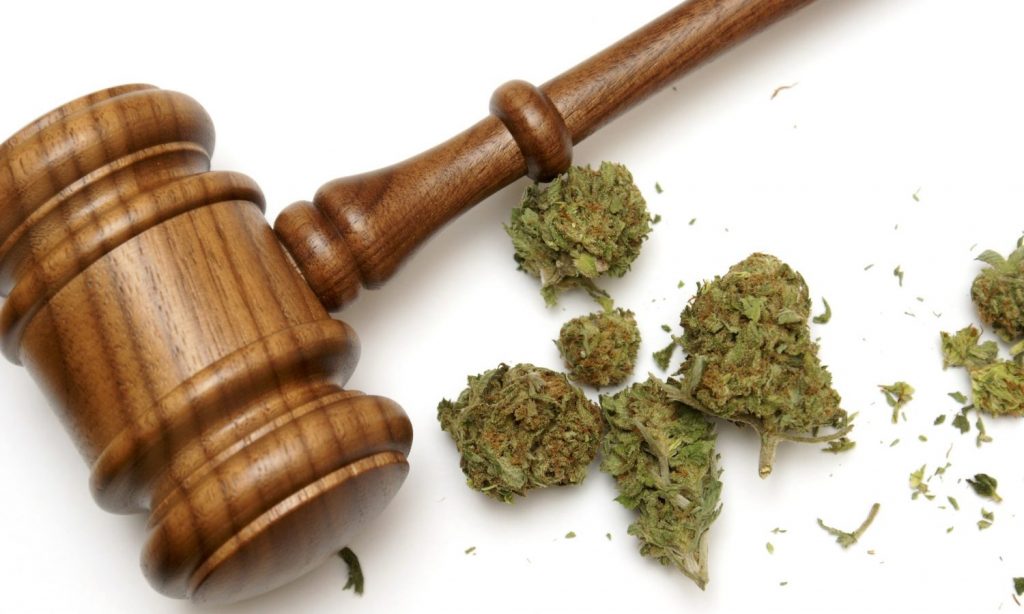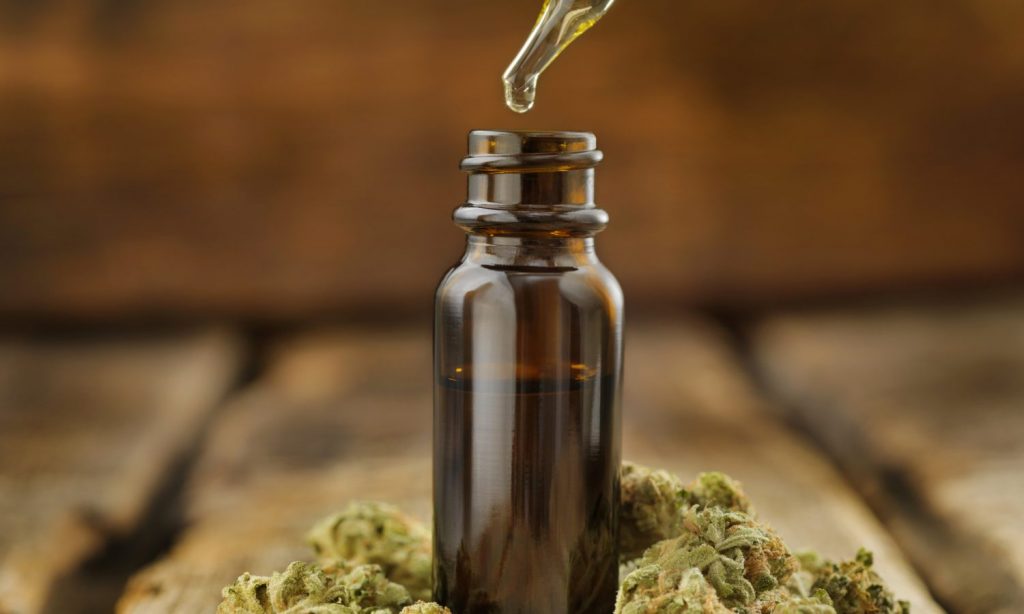A deep dive into state reform law, the cannabis legalization law everyone is talking about
I feel like we live in a wrong world when it comes to legalizing cannabis at the federal level. The main reason is that while Dems has full control over Congress and the White House, he simply cannot get the ball over the line on a number of cannabis reform laws. These include draft banking bills (see the SAFE Banking Act, which the House of Representatives passed no fewer than five times) and general federal legalization (see the MORE Act and its Senate sister legislation, the Cannabis Administration Opportunity Act (“CAOA”).).
Much of this deadlock is due to the political tussle over other priority issues such as COVID recovery, infrastructure, etc around the issue. To heighten the feeling that we might be living in the Twilight Zone, South Carolina Republican Congresswoman Nancy Mace just passed a cannabis legalization act called the State Reform Act (“SRA”). Why is Rep. Mace’s Cannabis Bill Significant? Because she’s a junior Republican Representative in the House of Representatives (from the Southeast, no less). The SRA is also probably the most significant “across the aisle” reach that we have seen between our two (leading) very polarized political parties. It is possible that this bill has a better chance of getting through the Senate.
Photo by Melinda Podor / Getty Images
The 131-page bill essentially focuses on upholding state rights while introducing a much lower federal excise tax than we’ve seen in either the MORE Act or the CAOA. The SFA would also clear criminal records of non-cartel and DUI non-violent cannabis offenders. Mace’s bill, while it would completely decriminalize cannabis and get it out of Schedule I, would also result in the Feds regulating cannabis like alcohol, while ultimately leaving licensing and other commercial regulations to the states. This part is not in the least surprising.
If you want a quick and dirty look at the bill, here is the one-page summary from Mace’s office. Here are the other top business and regulatory highlights as we see them:
Role of the FDA and USDA
If this law is passed, the Food and Drug Administration (“FDA”) will have little to do with cannabis other than legitimate medical uses. The United States Department of Agriculture (“USDA”), on the other hand, will play an important role in providing the federal regulatory framework for cannabis farmers (and for “raw cannabis” as opposed to commercial cannabis end-products). The role of the USDA will be similar to its oversight of “. . . other traditional agricultural commodities such as grain, hops and barley ”.
The bill also describes how tribes and states will submit raw cannabis growing plans to the USDA for approval (and which will essentially include their regulatory, licensing and compliance oversight programs). In the event that a tribe or state fails to develop a plan or the plan is rejected by the USDA, producers simply follow the overall system put together by the USDA (these guidelines are very similar to the standards of the 2018 Farm Bill). Legalization of hemp).
State ban is OK
If states wish to ban commercial cannabis activities within their borders, they are free to do so.
TTB will allow and regulate international trade
International trade in cannabis and cannabis deals is authorized and regulated by the Alcohol and Tobacco Tax and Trade Bureau of the Department of Treasury (“TTB”). The Treasury Secretary will be responsible through TTB for the state’s track and trace system for cannabis products in international trade. And after the bill is passed and until the secretary announces all final regulations under the SRA (of course, this commercial cannabis activity must continue to comply with applicable state cannabis regulations). .
RELATED: GOP Legislators are officially filing cannabis legalization bill, which joins the Dems to regulate and tax weed
The permit itself is subject to conditions for obtaining it. Approval will be denied if an applicant:
(i) has been convicted of a disqualifying criminal offense; (ii) is unlikely to commence operations or to maintain operations in accordance with federal law in a reasonable time due to business experience, financial standing or trading relationships; or (iii)
that the proposed operations would violate state cannabis laws; or (iv) the applicant “has not disclosed any material required information or has made material misrepresentation in the application” does not obtain approval.
The list of “exclusive offenses” includes a conviction of a crime in the three years prior to the application for a license or a conviction for a misdemeanor within one year of the application for the license. There are a few exceptions to this list, the most important of which is probably that if a state investigates the problem and is still willing to issue a state license regardless of the offense, the offenses will not be qualified. In addition, any state-licensed cannabis company operating prior to the bill’s passage will be grandfathered if it applies to TTB to operate under federal permit (as well as any cannabis company that was licensed by a state after the bill was passed).
Photo by matt_benoit / Getty Images
Note that the TTB permit fee cannot exceed $ 10,000 per permit for the first three years after the bill is passed (and fee waivers apply to certain types of businesses under the Small Business Act). The rules for changing ownership of these permits do not (yet) look too burdensome.
The enforcement role shifts from DEA to ATF
When it comes to enforcing federal cannabis regulations, the Drug Enforcement Administration (“DEA”) and the Bureau of Alcohol, Tobacco, Firearms, and Explosives (“ATF”) are on hand (in addition to TTB as primary overseers). And “cannabis” has even been added to the agency’s name.
Advertising and promotion
The bill contains guidance specifically related to the advertising and promotion of cannabis products and the protection of minors (I can imagine the Fed will be very reliant on government regulations that already cover this issue well).
Age Limits (21)
The state age limit for cannabis use will be 21, with certain exceptions for those under the age of 21 who use medicinal cannabis under applicable state laws that permit it.
Control of the Federal Law on the Administration of Alcohol
Both ATF and TTB will adhere to the Federal Alcohol Administration Act (“AAA”) when it comes to enforcing future cannabis regulations (changing the AAA to add cannabis and to harmonize technical changes between alcohol and cannabis). Regarding this section 208 of the bill, the SRA Policy Brief states:
“Reflecting the political success of the Blaine Act of Congress in moving alcohol smugglers to a safe, regulated legal marketplace, the new federal alcohol law provisions regarding cannabis grandfather are low to existing state licensees in the new federal system and barriers to entry for businesses To create incentives for the transition to a legal market. “
“Designated State Medical Products” and the FDA
“Designated State Medical Products” (which are to be used under federal law for specifically enumerated diseases) are incorporated into the Food Drug & Cosmetic Act by the Designated State Medical Cannabis Product Safety Act. This law”. . . Ensures continued access to medical patients and government medical cannabis programs – serving millions of Americans with serious illnesses such as epilepsy and seizure disorders without disrupting patient access, “thus bringing those products into lawful international trade immediately.
RELATED: Biden’s FDA Pick Recognizes Cannabis’ Potential: Will It Take Government Closer to Legalization?
According to the Policy Brief “[t]The FDA may continue to mandate serving sizes, certify designated government medical cannabis products as a ministerial duty, and allow new drugs or approved uses of drug applications to develop new pharmaceutical products, but may not allow the use of cannabis or its derivatives in non-drug applications such as in designated government medical applications Cannabis products, nutritional supplements, foods, beverages, non-medicinal topical solutions or cosmetics. “
Photo by LauriPatterson / Getty Images
SBA fairness
The Small Business Administration must now treat cannabis companies like any other business, which means government loans should be available. The SRA appears to be reconsidering treating cannabis companies like hemp companies in this regard.
steer
The bill introduced the Cannabis Revenue Act, which provides for a 3% excise duty on cannabis products and a ten-year moratorium on all increases to “ensure market competitiveness”. Congress can lift the moratorium, but the votes for it are pretty high. The tax is payable as soon as the cannabis is created, and the bill includes different “withdrawal price categories” (similar to alcohol and tobacco, which are taxed by volume and pre-defined categories).
Veterans Regulations
The bill provides excellent support to military veterans in that they must not be discriminated against in federal hiring for cannabis use, and finally, the veterans administration must actually help veterinarians gain access to government medical cannabis information and openly discuss medical treatments with them Cannabis with no legal ramifications by the military when it comes to veteran medical benefits.
International Law and Treaties
The international trade in cannabis could certainly open up under this bill, which stipulates that “The President. . . and the United States Commercial Agent sends sales agencies and contracts with foreign jurisdictions that have legalized the import and export of cannabis to facilitate legal trade between the United States and overseas jurisdictions. ”Translation, domestic and international barriers for the cannabis trade must be dismantled.
_____
Everyone in the cannabis world and their mothers report or talk about this law. I am happy to see that. In any case, it is worked through in the house on a variety of subjects, I have no doubt about that. The SRA’s chances of surviving are currently unknown, but the excitement for it is enough to deserve legitimate attention as a serious contender for real reform. Stay tuned!
Hilary Bricken is a partner at Harris Bricken. This story was originally published on the Canna Law Blog and reposted with permission.
The post A deep dive into state reform law, the cannabis legalization law everyone is talking about appeared first on fifthavegreenhouse.
Original post here: A deep dive into state reform law, the cannabis legalization law everyone is talking about



Comments
Post a Comment